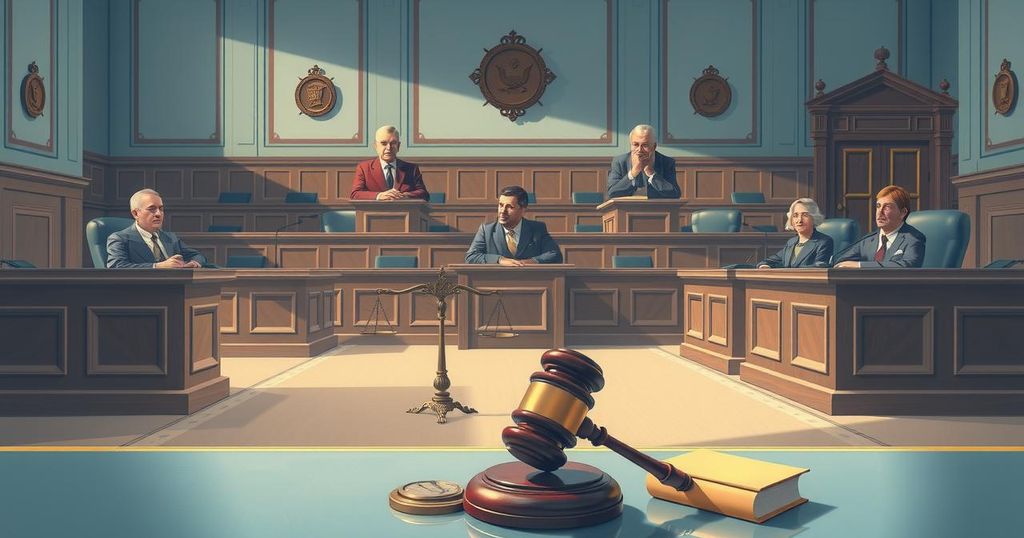Sudan has filed a legal case against the UAE at the International Court of Justice, accusing the nation of arming the Rapid Support Forces. This conflict is characterized as a proxy war among Gulf nations, significantly impacting regional stability and humanitarian efforts. The suspension of US aid worsens the prevailing famine crisis in Sudan.
Sudan has initiated a legal case against the United Arab Emirates at the International Court of Justice, accusing the UAE of arming the paramilitary Rapid Support Forces amid the ongoing civil war. This conflict has resulted in severe ethnic violence in Darfur, classified as genocide by the United States. The situation has led to one of the most significant displacement crises globally, prompting the first global famine declaration in decades.
The conflict in Sudan is being interpreted as a proxy war among Middle Eastern rivals, with Gulf nations seeking to enhance their status in the region. Sudan’s geographical significance positions it as a strategic connection between the Middle East and Africa, especially due to its Red Sea coastline. Both the UAE and Saudi Arabia have made substantial investments in Sudan as they vie for dominance, with the former alleged to have smuggled weapons to the Rapid Support Forces under the pretense of providing aid.
The suspension of US aid under the previous administration has led to the closure of nearly 80% of emergency food kitchens catering to famine-stricken populations in Sudan. Following the US Supreme Court’s dismissal of the Trump administration’s aim to maintain the freeze on aid, uncertainty remains regarding when this assistance will be unblocked. Affected individuals in Sudan are reportedly in dire need, while China is suggested to focus on alternative forms of engagement with Africa, emphasizing transactional partnerships rather than aid.
In summary, Sudan’s legal action against the UAE highlights the increasing complexities and international ramifications of its civil war. The ongoing conflict has drawn in regional powers, exacerbating violence and humanitarian crises. Additionally, the suspension of US aid further endangers the wellbeing of those suffering from severe famine, as stakeholders navigate geopolitical interests in this pivotal region.
Original Source: www.semafor.com






